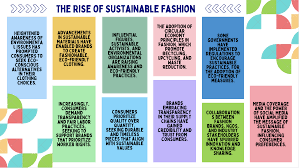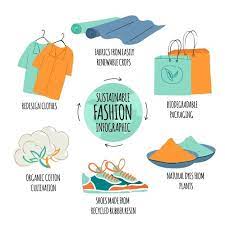Championing Sustainability: The Rise of Ethical Clothing Companies

The Rise of Ethical Clothing Companies
In recent years, the fashion industry has seen a significant shift towards ethical practices, with more and more clothing companies embracing sustainability and social responsibility. Ethical clothing companies are paving the way for a more conscious and transparent fashion industry.
One of the key focuses of ethical clothing companies is ensuring fair working conditions for garment workers. By partnering with factories that provide safe working environments and fair wages, these companies are taking a stand against exploitation in the fashion supply chain.
Moreover, ethical clothing companies place a strong emphasis on using environmentally friendly materials and production processes. From organic cotton to recycled polyester, these companies are committed to reducing their impact on the planet and promoting sustainable practices.
Transparency is another core value of ethical clothing companies. Many brands now provide detailed information about their supply chain, manufacturing processes, and sourcing practices to empower consumers to make informed choices about the clothes they buy.
Consumers are increasingly seeking out ethical clothing companies that align with their values. The demand for sustainable and ethically produced fashion is on the rise, prompting more brands to adopt responsible practices throughout their operations.
As ethical clothing companies continue to grow in popularity, they are reshaping the fashion industry by setting new standards for ethics, sustainability, and transparency. By supporting these brands, consumers can contribute to a more sustainable and equitable future for fashion.
5 Tips for Choosing Ethical Clothing Brands: A Guide to Sustainable Fashion
- Look for companies that are transparent about their supply chain and manufacturing processes.
- Choose brands that use sustainable materials such as organic cotton, bamboo, or recycled fabrics.
- Support companies that pay fair wages to workers and ensure safe working conditions.
- Consider buying second-hand or vintage clothing to reduce waste and support a circular economy.
- Research certifications such as Fair Trade or GOTS to identify ethical clothing companies.
Look for companies that are transparent about their supply chain and manufacturing processes.
When seeking out ethical clothing companies, it is essential to prioritise those that demonstrate transparency regarding their supply chain and manufacturing processes. By choosing brands that openly share information about where and how their garments are made, consumers can make informed decisions that align with their values. Transparency not only fosters trust between the brand and the consumer but also promotes accountability and encourages responsible practices throughout the fashion industry.
Choose brands that use sustainable materials such as organic cotton, bamboo, or recycled fabrics.
When looking to support ethical clothing companies, it is advisable to choose brands that prioritise sustainable materials like organic cotton, bamboo, or recycled fabrics. By opting for clothing made from these eco-friendly materials, consumers can reduce the environmental impact of their fashion choices. Sustainable materials not only help conserve natural resources but also promote better practices throughout the supply chain, aligning with the values of transparency and environmental responsibility that ethical clothing companies strive to uphold.
Support companies that pay fair wages to workers and ensure safe working conditions.
Supporting companies that pay fair wages to workers and ensure safe working conditions is crucial in promoting ethical practices within the fashion industry. By choosing to purchase from these companies, consumers can actively contribute to improving the lives of garment workers and combatting exploitation in the supply chain. Fair wages and safe working conditions are fundamental rights that all workers deserve, and by supporting ethical clothing companies that uphold these standards, we can help create a more sustainable and socially responsible fashion industry.
Consider buying second-hand or vintage clothing to reduce waste and support a circular economy.
When looking to support ethical clothing companies, one impactful tip is to consider buying second-hand or vintage clothing. By opting for pre-loved garments, you not only reduce waste but also contribute to a circular economy where items are reused and recycled rather than discarded. Embracing second-hand fashion promotes sustainability by extending the lifespan of clothing and minimising the environmental impact of production. Additionally, shopping for vintage pieces adds a unique touch to your wardrobe while supporting a more eco-conscious approach to fashion consumption.
Research certifications such as Fair Trade or GOTS to identify ethical clothing companies.
When looking for ethical clothing companies, it is advisable to research certifications like Fair Trade or GOTS (Global Organic Textile Standard) as they serve as reliable indicators of a brand’s commitment to ethical practices. These certifications ensure that the clothing has been produced in compliance with strict social and environmental standards, including fair wages for workers and sustainable production methods. By prioritising brands with these certifications, consumers can make more informed choices and support companies that uphold high ethical standards in their operations.

